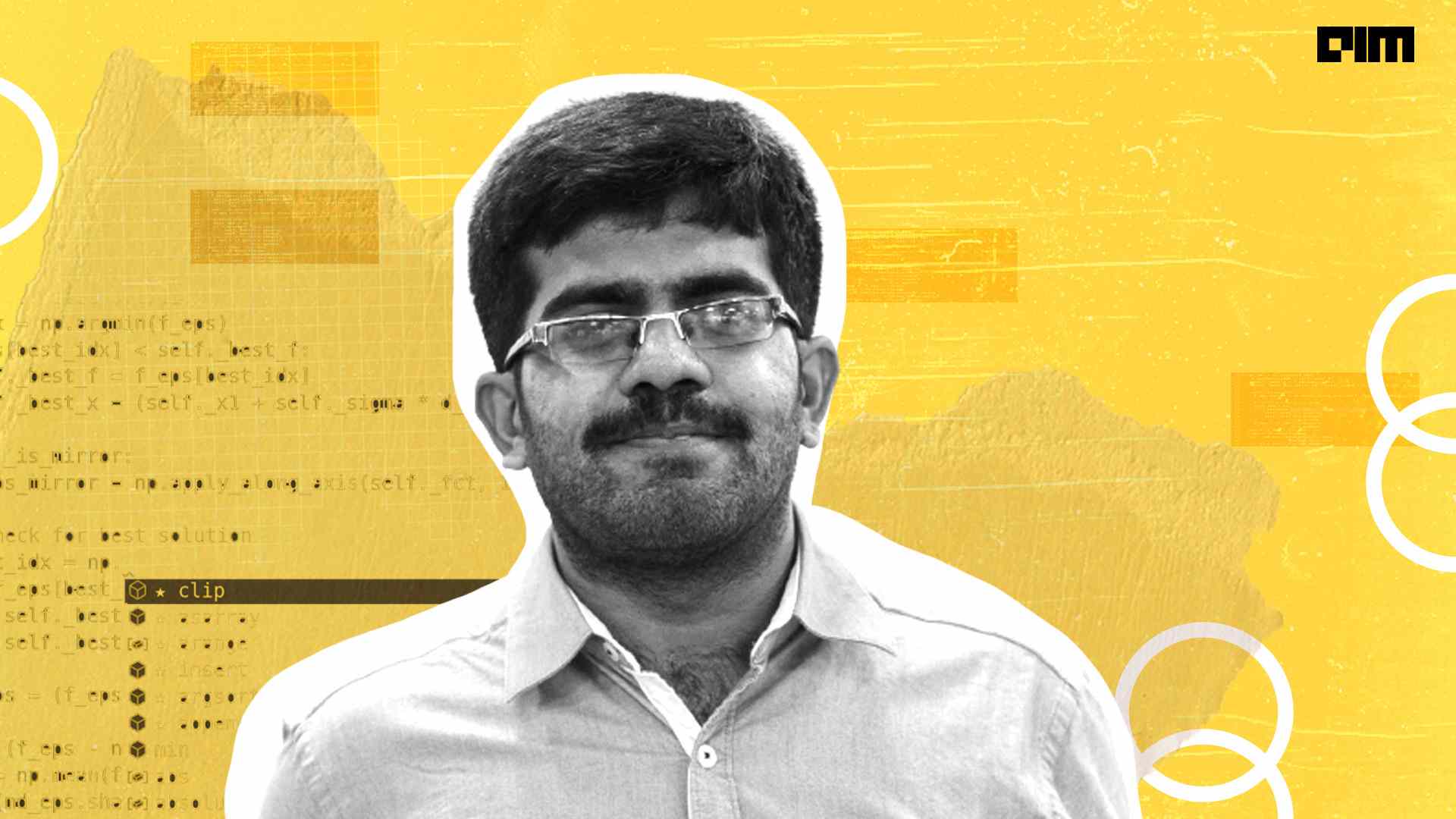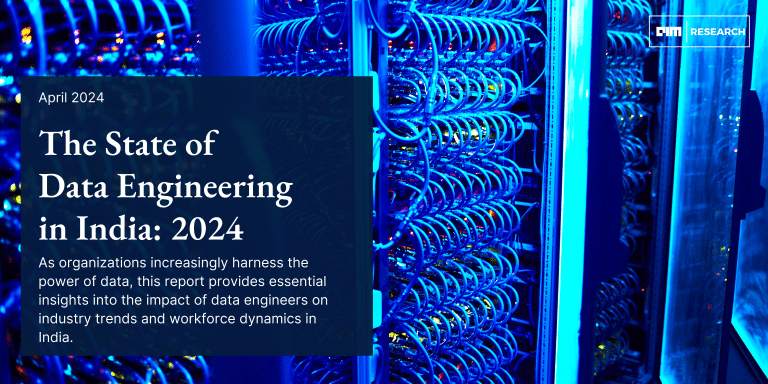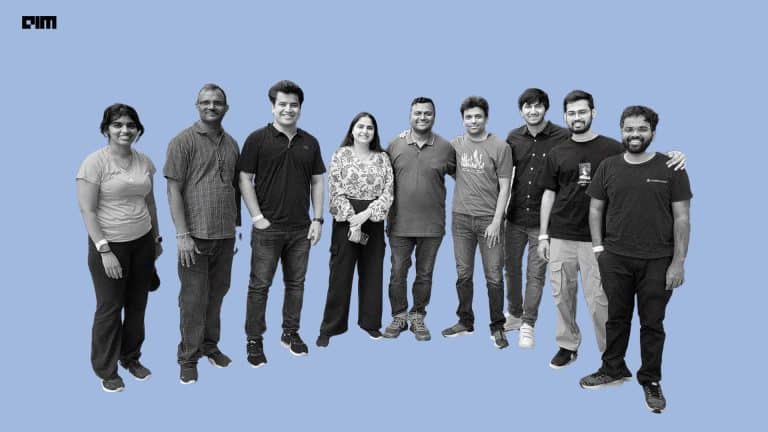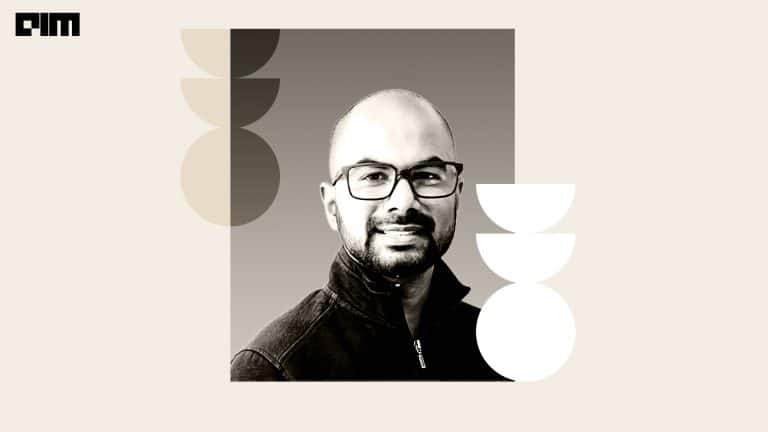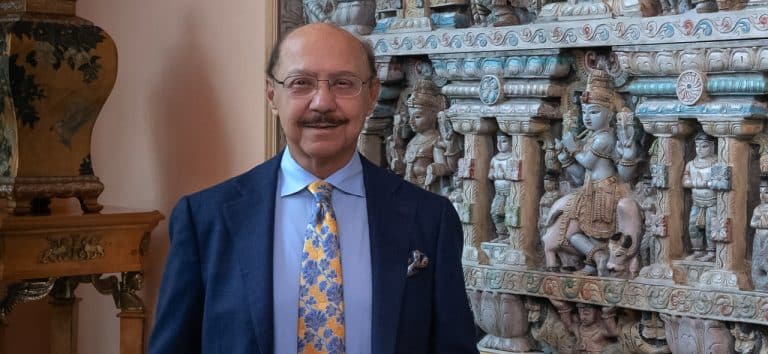The engineering life of Chennai-based Kaggle Triple Grandmaster Sudalai Rajkumar had its turns. He graduated as a mechanical engineer joined an analytics firm – but in the software team. It was his interest in data science that has made him learn more about the field and master it.
Sudalai Rajkumar is a Competitions, Notebooks and Datasets Grandmaster on Kaggle and is currently working as an AI/ML Advisor for a few start-ups. He was previously with H2O.ai, Freshworks, Tiger Analytics and Global Analytics. Rajkumar also did an Executive program on Business Analytics from IIM Bangalore.
Register for FREE Hands-on ML workshop
In an interview with Analytics India Magazine, SRK spoke about his learning about data and machine learning on the job and how keeping the curiosity alive about the field helps you achieve more.
Excerpts:
AIM: What was your first job?
SRK: I did mechanical engineering in my under graduation. I got placement offers from a mechanical engineering behemoth and also from an analytics firm. I joined the analytics firm as it sounded a lot of fun finding patterns in the data. But, my first job was not in the analytics team there. I was put in the software team as a Python engineer to start with. It was a blessing in disguise as Python became the de facto language for data science folks in the next few years.
AIM: What made you interested in Kaggle? Kaggle is also a lot of self-learning. What inspires or motivates you for that?
SRK: As you rightly mentioned, Kaggle is a lot of self-learning. When I started my DS journey, I took some MOOC courses and learnt the basic concepts from there. I understood the theory part but was looking for some projects to get hands-on experience. That is when I stumbled upon the Kaggle StumbleUpon challenge. This notebook by Abhishek Thakur helped me a lot in that challenge to get started.
It is hard to get started, but once we are into Kaggling, it is very addictive. I am sure most Kagglers will agree with that. The community out there is awesome, and in every competition, we will get to learn a lot of new things from the top solutions, discussion forums and notebooks. On top of this all, when we beat our previous day’s score and move up the leader board, that gives us the motivation to stay in the game.
AIM: Did you achieve success in the first competition? If yes, how hard did you work? If not, what was that you learnt to keep going?
SRK: Are you kidding me? I am not that smart :D. It took me a lot of time to get my first gold medal in a Kaggle competition. The learning from others and the motivation to beat myself every day kept me going. Also, I team up with people in the competitions so as to learn and motivate each other to keep going.
AIM: Which is your favourite Kaggle competition, and how did you approach it?
SRK: I would say all the competitions are my favourite since there are a lot of learnings from each one of them. If I have to mention only one, then it is the “How much did it Rain?” competition because it is the competition where I got my first gold and also got to know some awesome folks – Marios and Mark.
It is a real-life messy time series data. There are a lot of missing values and collection errors. It taught me what data looks like in the real world and how to deal with them. Also, I learned a lot about time series modelling and how to validate them.
AIM: When did your interest in computer science begin?
SRK: To be honest, I didn’t know much about computer science until my first job. On the first day of my job, I struggled to even operate a Linux machine. My interest in analytics/data science kindled my interest in computer science as well.
AIM: How has the professional journey been so far? What is it about machine learning that excites you the most?
SRK: It has been really good so far. I got wonderful opportunities to work with multiple unicorns as part of my professional life. I also got a chance to work with some of the best minds in the world and learnt a lot from them. The pace at which things change in the machine learning world amazes and excites me. It always keeps me on my toes and brings the best out of me.
AIM: According to you, what makes a good data scientist?
SRK: Apart from all the technical knowledge that is commonly known, additional traits I would expect from a good data scientist are
1. Ability to understand and connect with the business problem that is being solved
2. Structural/critical thinking on how to go about solving the problem
3. Ability to articulate the outcomes/results to non-data science folks in an easy to understand manner.
These traits are often not much talked about, but they play a very important role in shaping up one’s career.
AIM: What is your advice for beginners in Kaggle?
SRK: It is easy to start, but it is very hard to consistently do it. Most of the things that we try will not improve the score, and so we feel like giving up in the middle of the competition. It is quite natural. But take a break and come back. This has helped me get a new perspective on the problem and then improve the scores. Also, this is another area where teaming up with people helps motivate each other.
AIM: What do you think is the future of data science?
SRK: I see more and more data science projects being deployed into the production system, which will continue to increase in the future. A few years back, it was either a research and experimentation division or used by very few of the advanced technology companies. This is not the case right now, and I think all the companies will be Data/AI-first companies in the future. This means we will see a lot of improvements in the data science tooling and algorithms space and a lot of opportunities for bright young minds.


